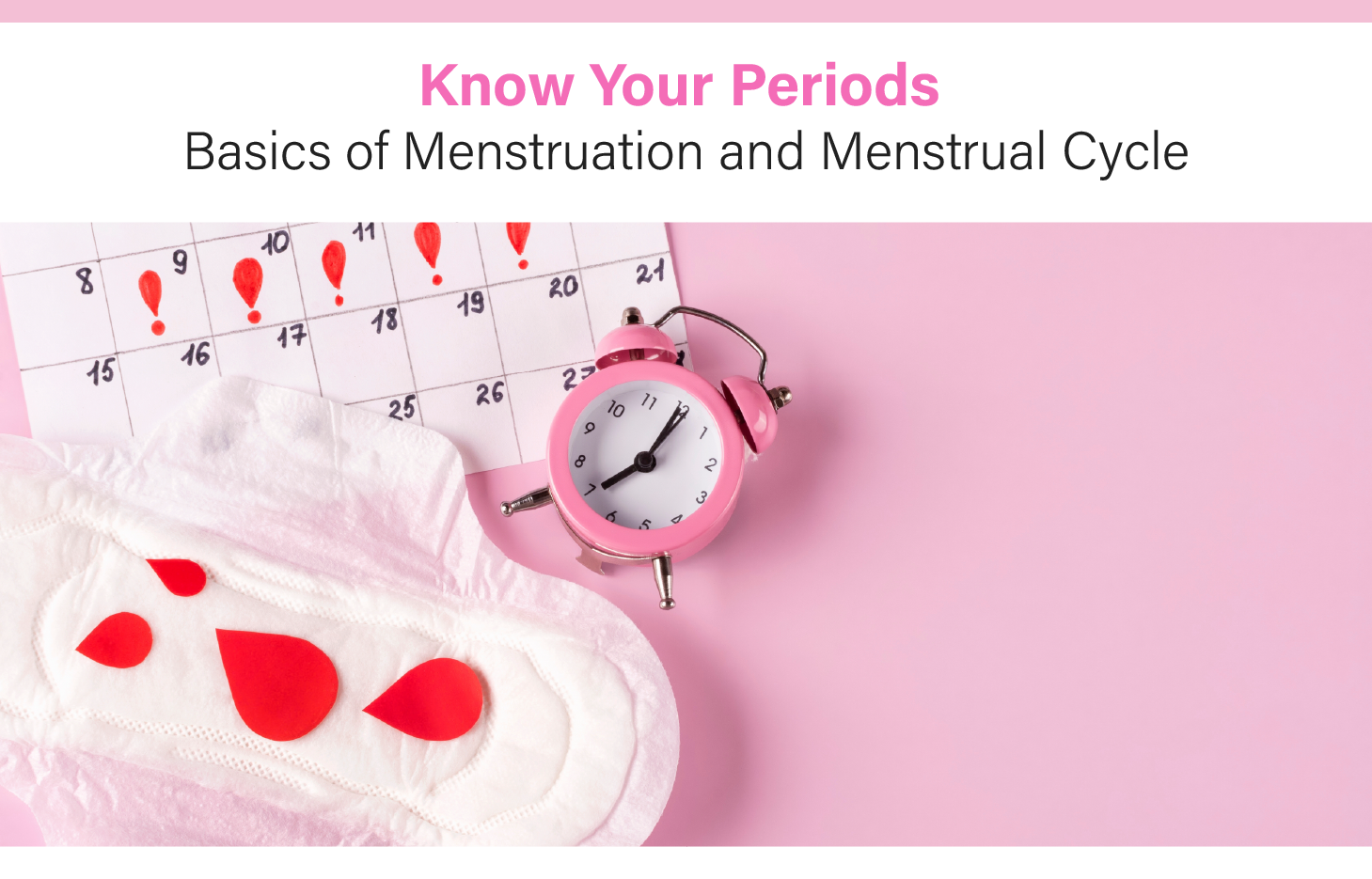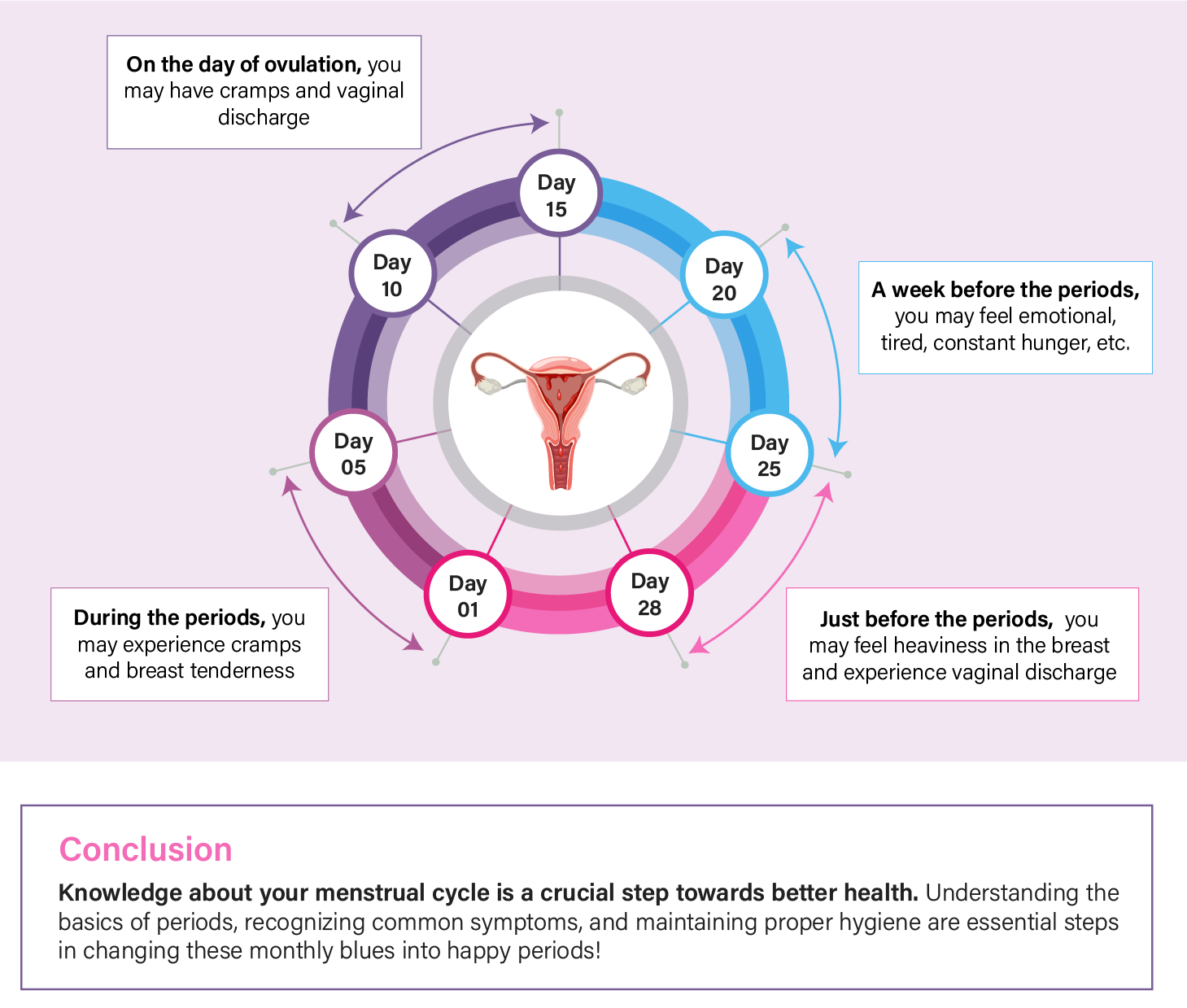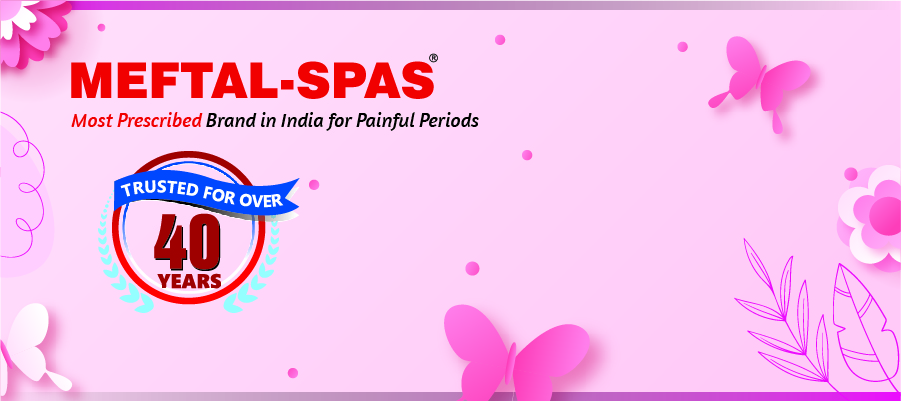
On average, a woman menstruates for about 7 years during her lifetime.1 Menstruation, or periods, is a natural part of a woman’s reproductive cycle. However, girls and women across India have to manage this monthly occurrence alone and silently. This isolation stems from the taboos and restrictions surrounding periods that hinder them from gaining a complete understanding of it.2,3
Understanding periods is an essential aspect of women's health. In this blog, we will delve into the basics of periods, to help comprehend your menstrual cycles better.

Menstruation or periods is the shedding of the lining of the uterus through the vagina.2,4,5 This shedding of blood lasts for 2-7 days and a woman loses around 30-40 mL of blood on her periods, but this can vary, some women may have periods lighter or heavier than others and it is completely normal.5,6
If you aren’t experiencing severe cramping, nausea, or other problems then your individual amount of blood loss is likely normal.6 A girl first begins her period anytime between the ages of 10 and 14 years which is known as menarche.5,7 Since then, a woman gets her period every month until it stops permanently in her 40s or 50s, which is known as menopause.4,8

The menstrual cycle is a monthly process that prepares a female body for pregnancy.4 The onset of periods is counted as the first day of the menstrual cycle which ends with the beginning of the next period. This cycle lasts for about 28 days, but it can vary between 21 to 35 days.4,5
If your duration of bleeding and time of the menstrual cycle varies, do not worry, the menstrual cycle varies from person to person and throughout a female’s reproductive years. Only 10%-15% of females have cycles of exactly 28 days.4 Remember everyone is different!

Though periods are a natural part of a woman’s life, they can also cause discomfort such as pain in the lower belly, lower back and thighs, mood swings, fatigue, bloating, acne, etc.9 Staying prepared for periods will help you manage your periods better.
• Have spare menstrual clothes/pads/tampons with you always and change them regularly.5
• Maintain hygiene by taking a bath every day and washing your hands with soap and water after changing your pads.5
• Use a calendar to mark your menstrual cycles to stay prepared.5

References:
1. FAST FACTS: Nine things you didn't know about menstruation. UNICEF [Internet]. Available at: FAST FACTS: Nine things you didn't know about menstruation (unicef.org). Accessed on: Nov 13, 2023.
2. Menstrual cycle. Cleveland Clinic [Internet]. Available at: Menstrual Cycle (Normal Menstruation): Overview & Phases (clevelandclinic.org). Accessed on: Nov 13, 2023.
3. Garg S, Anand T. Menstruation-related myths in India: strategies for combating it. J Family Med Prim Care. 2015 Apr-Jun;4(2):184-6.
4. Menstrual cycle. MSD Manual [Internet]. Available at: Menstrual Cycle - Women's Health Issues - MSD Manual Consumer Version (msdmanuals.com). Accessed on: Nov 13, 2023.
5. Healthy Menstruation: A guide for girls. UNICEF [Internet]. Available at: 3- 60 Menstrual Hygiene Manag...lish A5 Cover 230 Isi 150.pdf (unicef.org). Accessed on: Nov 13, 2023.
6. How Much Blood Do You Lose on Your Period? Healthline [Internet]. Available at: How Much Blood Do You Lose on Your Period? Cups, Tampons, More (healthline.com). Accessed on: Nov 13, 2023.
7. Menarche. Cleveland Clinic [Internet]. Available at: Menarche (First Period): Overview, Age & What To Expect (clevelandclinic.org). Accessed on: Nov 13, 2023.
8. Menopause. Mayoclinic [Interent]. Available at: Menopause - Symptoms and causes - Mayo Clinic. Accessed on: Nov 13, 2023.
9. 10 Signs Your Period Is About to Start. Healthline [Internet]. Available at: Period Symptoms and Signs: Normal, and When to See a Doctor (healthline.com). Accessed on: Nov 13, 2023


